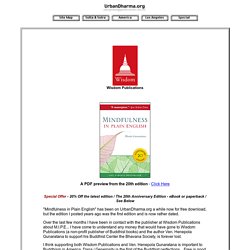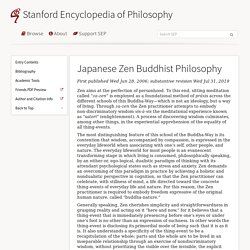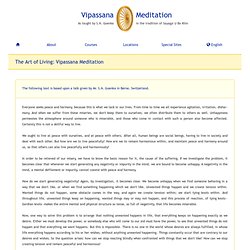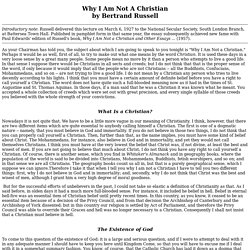

Mindfulness In Plain English. A PDF preview from the 20th edition - Click Here Special Offer - 20% Off the latest edition / The 20th Anniversary Edition - eBook or paperback / See Below "Mindfulness in Plain English" has been on UrbanDharma.org a while now for free download, but the edition I posted years ago was the first edition and is now rather dated.

Over the last few months I have been in contact with the publisher at Wisdom Publications about M.I.P.E... I have come to understand any money that would have gone to Wisdom Publications (a non-profit publisher of Buddhist books) and the author Ven. Henepola Gunaratana to support his Buddhist Center the Bhavana Society, is forever lost. I think supporting both Wisdom Publications and Ven. " Wisdom Publications and UrbanDharma.org have joined forces to offer a 20% discount code - UDMIP- on the New Edition of "Mindfulness in Plain English" which can be applied to both the 'paperback and eBook' version at check out, on the Wisdom Publications website...
Buddhism Vaults : Dalai Lama's Heart Sutra Talk, May 2001, SF Bay Area, California, Day 1 of 3. by Dave Evans. Day 2Day 3 Introduction Today I was fortunate enough to sneak out of work for a few hours to hear His Holiness the Dalai Lama began a lecture on the Heart Sutra.

This is a three day class and I'm going to sneak out of some work tomorrow and Attend Saturday during the day as well. I thought I'd share some of what he said (as interpreted through my notes) with everyone. How to Meditate - Guided Meditation Techniques - Buddhist Meditations. Japanese Zen Buddhist Philosophy.
1.

The Meaning of the Term Zen The designation of this school of the Buddha-Way as Zen, which means sitting meditation, is derived from a transliteration of the Chinese word Chán. Because the Chinese term is in turn a transliteration of the Sanskrit term dhyāna, however, Zen owes its historical origin to early Indian Buddhism, where a deepened state of meditation, called samādhi, was singled out as one of the three components of study a Buddhist was required to master, the other two being an observation of ethical precepts (sīla) and an embodiment of nondiscriminatory wisdom (prajñā). Meditation was picked as the name for this school because the historical Buddha achieved enlightenment (nirvāna) through the practice of meditation. In the context of Zen Buddhism, the perfection of nondiscriminatory wisdom (Jpn.: hannya haramitsu; Skrt.: prajñāpāramitā) designates practical, experiential knowledge. 2.
We are perfect Buddha Mind. Mindfulness Bell. ZEN. The Art of Living: Vipassana Meditation. The following text is based upon a talk given by Mr.

S.N. Goenka in Berne, Switzerland. Everyone seeks peace and harmony, because this is what we lack in our lives. From time to time we all experience agitation, irritation, disharmony. And when we suffer from these miseries, we don't keep them to ourselves; we often distribute them to others as well. We ought to live at peace with ourselves, and at peace with others. In order to be relieved of our misery, we have to know the basic reason for it, the cause of the suffering.
How do we start generating negativity? The Buddha and His Dhamma, by Dr. B. R. Ambedkar. His Holiness the 14th Dalai Lama. 101 Zen Stories - StumbleUpon. Essentials of Buddhism - core concepts - StumbleUpon.
Integral Options Cafe. Timeless Quotes From the Buddha Jiddu Krishnamurti. Un article de Wikipédia, l'encyclopédie libre.

Krishnamurti dans les années 1920 Jiddu Krishnamurti (ou Jidhu Krishnamurti) (en télougou జిడ్డు కృష్ణ మూర్తి et en tamoul கிருஷ்ணமூர்த்தி), né à Madanapalle (Andhra Pradesh) le 12 mai 1895 et décédé à Ojai (Californie) le 17 février 1986, est un homme d'origine indienne promoteur d'une éducation alternative. Apparue au sein de la théosophie et de la contreculture des années 1960, sa pensée exerça une influence notable sur des auteurs et des personnalités de différentes disciplines.
D'abord présenté dès son adolescence par la société théosophique de l'époque comme un messie potentiel, il a opéré un revirement un peu plus tard pour développer une thèse radicalement opposée, reposant principalement sur l'idée qu'une transformation de l'humain ne peut se faire qu'en se libérant de toute autorité[2]. Biographie[modifier | modifier le code] « L'instructeur du monde »[modifier | modifier le code] Une autre direction[modifier | modifier le code]
Why I Am Not A Christian, by Bertrand Russell. Introductory note: Russell delivered this lecture on March 6, 1927 to the National Secular Society, South London Branch, at Battersea Town Hall.

Published in pamphlet form in that same year, the essay subsequently achieved new fame with Paul Edwards' edition of Russell's book, Why I Am Not a Christian and Other Essays ... (1957). As your Chairman has told you, the subject about which I am going to speak to you tonight is "Why I Am Not a Christian. " Perhaps it would be as well, first of all, to try to make out what one means by the word Christian.